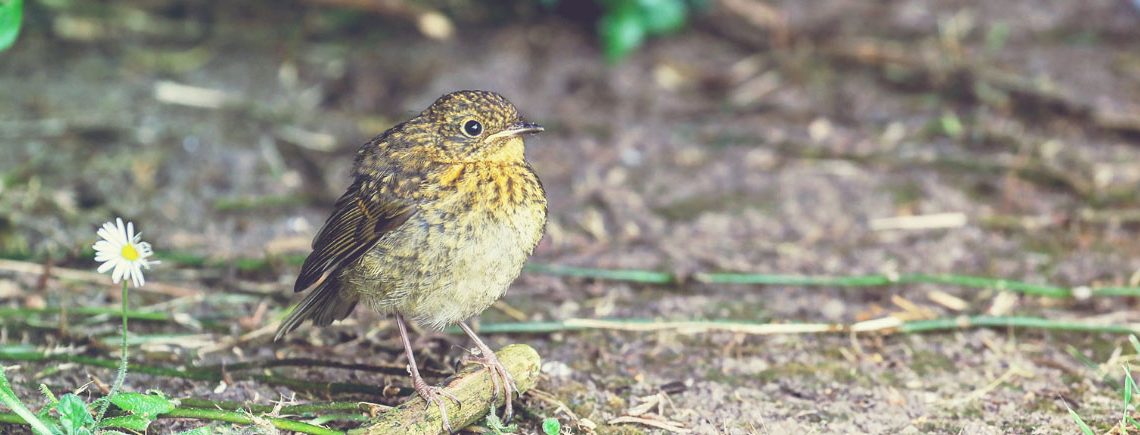I Found a Baby Bird, What Do I Do?
It is not unusual to find baby birds out of their nest during the spring and summer time. Most of the time, there is no need to be worried or concerned about the bird; the parents are often keeping a watchful eye from up above. Baby birds often leave the nest before they are fully capable of flight, such as Blackbirds and Robins. After a while of being on the ground, the young bird will begin to get hungry and will attempt to return to the nest to get food, all the while using and strengthening his wings. After a few hours, he will fly back up to the nest.
Most baby birds on the ground don’t need help, and too often baby birds have been essentially been taken away unnecessarily by a well meaning Samaritan. In this blog post, we’ll guide you through what to do, and what not to do, when you encounter a baby bird in your garden.
Is the Baby Bird a Fledgling or a Nestling?
Before you attempt to aid the bird, it’s important that you confirm if they are a nestling or a fledgling.
Fledgling:
- Bigger than nestlings
- Most or all of their feathers
- Hopping around
If you have found a healthy fledgling, it is important you walk away. Keep pets out of sight, and leave the baby bird alone. Attempting to rescue healthy fledglings is not only unnecessary, but it can be harmful to their development. When picked up, babies might confuse humans as their parents. This essentially leads them to not knowing how to be a bird.

Fledglings are most likely not abandoned by their parents; just because you can’t see them, doesn’t mean they are not there. They could be away collecting food or keeping a watchful eye—or even frightened away by your presence.
Only pick up the fledgling if they are in danger, such as on a busy road or path. Make sure they are out of reach of predators such as cats.
Nestling:
- Very small
- Have no feathers or just a few fluffs
- Eyes will be closed, or just barely open
- May drag themselves on the ground with wings
If you have found a nestling, it most likely has fallen from its nest and needs help. Look for the nest in the nearby bushes or trees; if you find it, simply put the chick back and the parents will eventually come and take care of it. Don’t worry about touching the baby either; birds don’t have a strong sense of smell, so won’t reject the chick because of your scent.
If you can’t find the nest or it is simply out of reach, you can craft a replacement one. Find a small container, and furnish it with some grass, straw, fur or even dry hair. Gently place the young bird inside, and place the artificial nest in a tree close to where you found the bird, as high as possible. Keep an eye out for the parents, but if they don’t return within an hour, contact a wildlife rehabilitation centre.

Is the Baby Bird is Injured?
Signs a baby bird is injured are:
- Not moving, on the ground
- Visible injuries such as blood, bites, wounds, or broken bones
- Feathers (if any) extremely fluffed up
- Wing is drooping/hanging or not symmetrical
- Dangling leg, unable to walk
- Picked up easily
- Unconscious or unresponsive
- Dehydration such as a wrinkled and prune-like belly (especially during hot weather)
If you can’t tell whether the bird is injured or not, leave the bird where it is and observe it for a time.
How to Help
If you’ve determined the baby bird needs help, only attempt capture if you have adequate equipment and secure container/well ventilated cardboard box.
If they are trying to quickly flap away, use a net to gently pin the bird to the ground. Place a towel over the bird, and carefully cup your hands around the bird without applying any pressure. Lift the baby bird into your container, and transport it to a local vet or wildlife centre.
Vets aren’t obligated to treat wildlife free of charge, and usually aren’t trained wildlife care. It is a good idea to call around local practices before visiting, and find out if your vet has connections with any local wildlife rescue groups to ensure the animal is taken care of after being treated.

